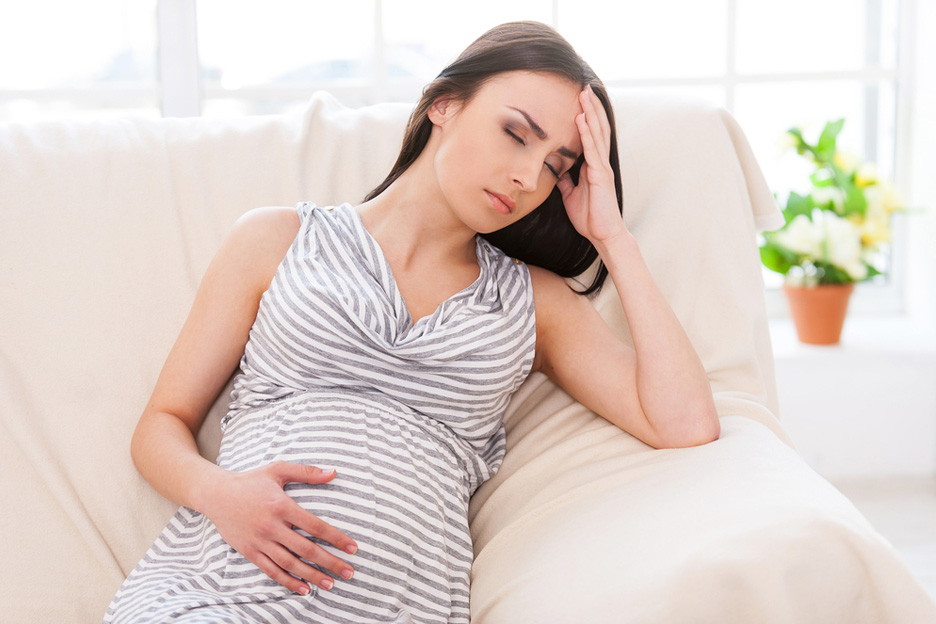If you notice a bit of blood in the toilet bowl or bloodstains on the bathroom tissue after you have a bowel movement, you may be suffering from hemorrhoids. Whether they are internal or external, you can treat them and prevent them from returning.

Oh no… it’s hemorrhoids!
We can all agree that hemorrhoids are a health issue that is quite uncomfortable and, let’s be honest, a bit embarrassing. However, many people (about 30 to 50% of the population) will suffer from hemorrhoids at least once in their lifetime. Pregnant women, more particularly, are likely to be affected by this condition. Would you be able to recognize the signs of hemorrhoids, and would you know what to do to make them go away?
What are hemorrhoids?
Hemorrhoids are a mass of dilated veins that develop near the rectum and anus. They can be internal (inside the rectum) or external (around the anus). They are usually described as being uncomfortable rather than painful, but they can nonetheless cause some of the following symptoms:
- itchiness;
- burning sensation;
- pain (mild to severe);
- bleeding.
What are the causes of hemorrhoids?
A number of factors can lead to the appearance of hemorrhoids. These are some of the most common:
- constipation;
- pregnancy;
- obesity;
- frequent diarrhea;
- lifting heavy objects;
- sitting for long periods of time;
- anal intercourse;
- bad posture;
- family history (if one parent has had them, there is a higher risk);
- liver problems.
How can I treat the problem?
Preventing and treating hemorrhoids can be done in three different ways: non-medicinal methods, drug therapy and surgery. In addition to adopting a healthy lifestyle, these options can be of help:
Non-medicinal methods:
- Keep the anal area clean (bathe/shower, clean the anal area with a disposable, fragrance-free wipe or wet bathroom tissue).
- Place cold compresses on the anus for 10 minutes, 3 to 4 times a day, to relieve itchiness.
- Take a sitz bath in lukewarm water for 10 to 15 minutes, 2 to 3 times a day, to alleviate pain. You can add a bit of sodium bicarbonate (baking soda) to the water.
- Wear cotton underwear to keep the area dry.
- Avoid lifting heavy objects.
Drug therapy:
If you suffer from hemorrhoids and wish to purchase over-the-counter medication for relief, ask your pharmacist. Indeed, it can sometimes be difficult to make heads or tails of the wide array of available products. Your pharmacist may suggest:
- an oral painkiller to manage pain (such as acetaminophen);
- a topical product to apply to the area. Topical products come in various forms (cream, ointment, gel, suppository) and contain ingredients that mostly:
- alleviate pain and burning sensations;
- have a soothing, refreshing effect;
- reduce inflammation and swelling.
To take full advantage of these products, make sure you follow the recommended dose and the manufacturer’s instructions. In some cases, the condition may require a prescription from a doctor, such as a formula containing cortisone.
Surgery:
In some circumstances, such as the ones listed below, a medical consultation may be necessary. It is also possible that a doctor will recommend surgery if other measures, whether they are medicinal or not, prove to be ineffective or insufficient. There are several types of surgical procedures, most of which are minor. Your doctor can inform you of the advantages and disadvantages of surgery.
When should I see a doctor?
It is best to see a doctor in the following cases:
- if the problem lasts over 7 days despite the use of basic measures or over-the-counter medication;
- in the presence of severe symptoms, such as sharp pain or abundant bleeding;
- if there is bleeding even when not using the bathroom;
- if the condition affects a child of less than 12 years of age.
What about prevention?
If you wish to prevent hemorrhoids, it is vital to adopt good health practices. Here are a few tips that can come in handy:
- If you are constipated, drink lots of liquids and eat more fibre. If needed, use fibre supplements, which are available at the pharmacy.
- Go to the bathroom as soon as you feel the urge.
- Avoid straining and prolonged sitting on the toilet; this position leads to the loosening of rectal muscles and draws blood to the veins in the area.
- Exercise regularly in order to stimulate movement of the intestines and to promote weight loss.
- Avoid lifting heavy objects; if necessary, use a supportive belt.
Hemorrhoids are one of the most common conditions of pregnancy. However, anyone can be affected at one moment or another. If they happen to you, don’t hesitate to consult your pharmacist, who will undoubtedly be able to help. No need to suffer in silence; there are many effective ways to heal hemorrhoids and bring a smile back to your face!